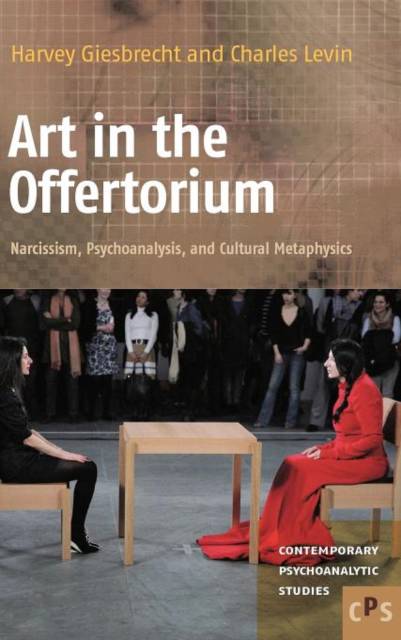
- Afhalen na 1 uur in een winkel met voorraad
- Gratis thuislevering in België vanaf € 30
- Ruim aanbod met 7 miljoen producten
- Afhalen na 1 uur in een winkel met voorraad
- Gratis thuislevering in België vanaf € 30
- Ruim aanbod met 7 miljoen producten
Zoeken
Art in the Offertorium
Narcissism, Psychoanalysis, and Cultural Metaphysics
Harvey Giesbrecht, Charles Levin
€ 141,45
+ 141 punten
Omschrijving
This book proposes a new approach to the problem of aesthetic experience in Western culture. Noting how art world phenomena evoke conventional psychoanalytic speculations about narcissism, the authors turn the tables and "apply" aesthetic questions and concerns to psychoanalytic theory. Experimenting with Freudian and post-Freudian concepts, they propose a non-normative theory of the psychic drive to address and embrace deep tensions in the post-Renaissance aesthetic project, the rise of modernism, and the contemporary art world. It is argued that these tensions reflect central conflicts in the development of patriarchal civilization, which the emergence of the aesthetic domain, as a specialized range of practice, exposes and subverts. The postmodern era of aesthetic reflection is interpreted as the outcome of a complex narcissistic dialectic of idealization and de-idealization that is significant for the understanding of contemporary culture and its historical prospects.
Specificaties
Betrokkenen
- Auteur(s):
- Uitgeverij:
Inhoud
- Aantal bladzijden:
- 280
- Taal:
- Engels
- Reeks:
- Reeksnummer:
- nr. 15
Eigenschappen
- Productcode (EAN):
- 9789042035010
- Verschijningsdatum:
- 1/01/2012
- Uitvoering:
- Hardcover
- Formaat:
- Genaaid
- Afmetingen:
- 155 mm x 235 mm
- Gewicht:
- 589 g

Alleen bij Standaard Boekhandel
+ 141 punten op je klantenkaart van Standaard Boekhandel
Beoordelingen
We publiceren alleen reviews die voldoen aan de voorwaarden voor reviews. Bekijk onze voorwaarden voor reviews.








